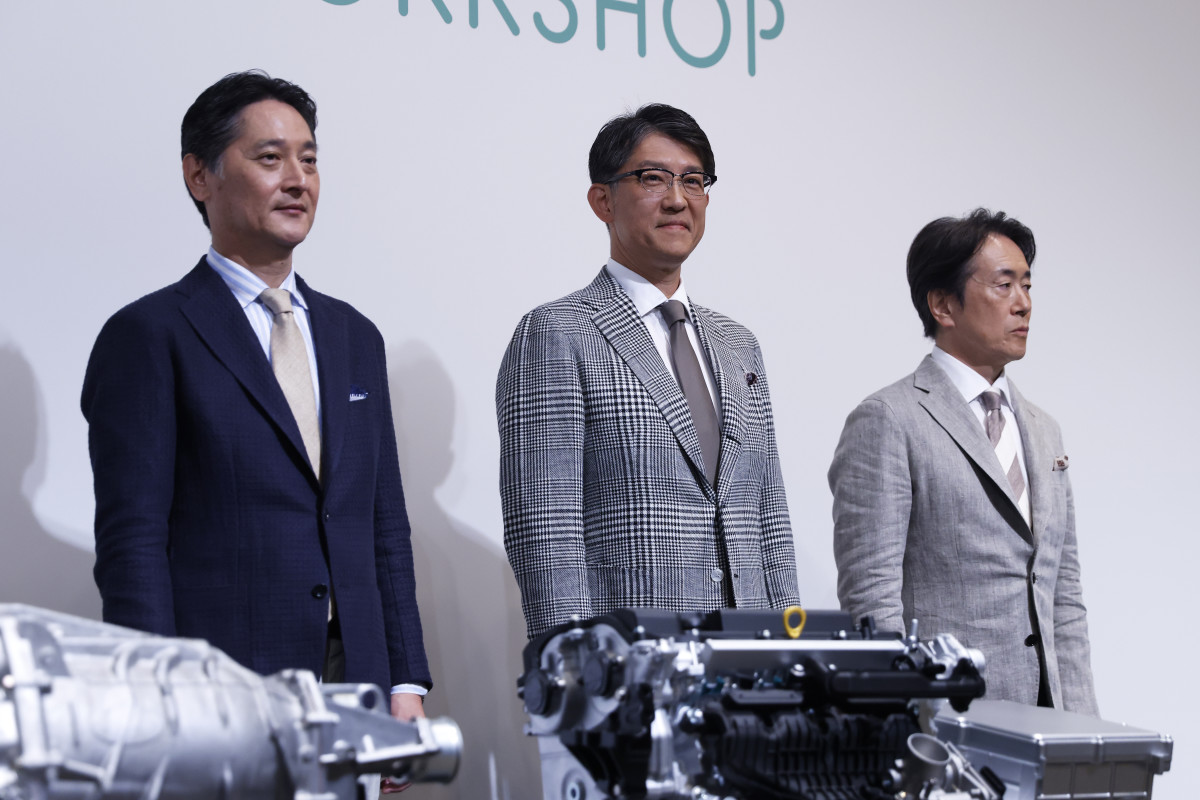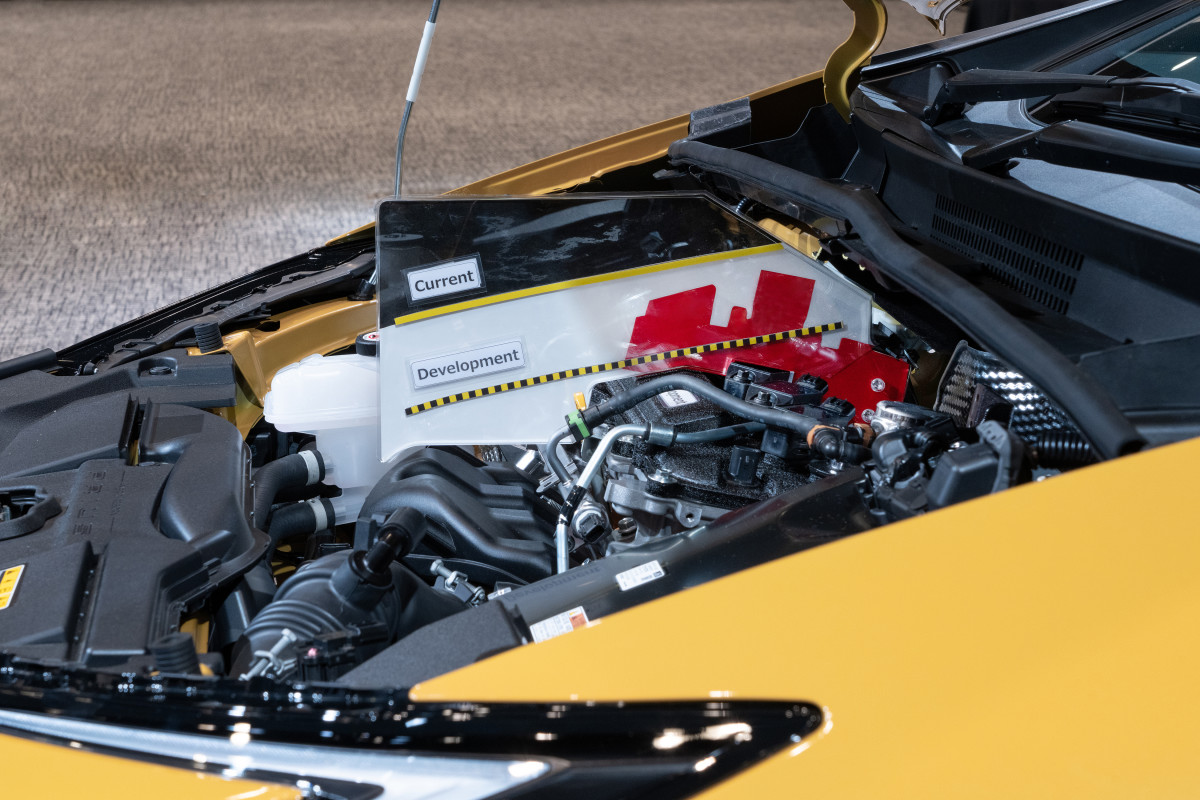
As the rest of the auto industry inches along the path toward electrification, Toyota (TM) has been taking a different strategy in regards to future powertrains — solidifying its position with a new, three-way partnership with other fellow Japanese automakers.
Related: Elon Musk's latest flip-flop exposes a trend of 'going soft' on China

During a joint press conference held in Tokyo on May 28, the CEOs of Toyota, Subaru and Mazda shared that they have been collaborating on a "multi-pathway" series of clean and efficient engines designed to preserve the viability of traditional internal-combustion engines (ICEs).
The new engines tackle the issue of decarbonization by optimizing the integration of electric drive units, resulting in the creation of new powertrains for future hybrid vehicles. Additionally, the trio claims that carbon neutrality will also be achieved with the use of new fuels such as synthetic gasoline-like fuels, biofuels and liquid hydrogen; all of which will be compatible with variations of these new motors.
The automakers also say that the new engines are physically smaller in size, but “highly efficient and powerful”, alluding to better performance while also complying with stricter emissions regulations present in different markets around the world. The trio also claim that because these new engines take up less space under the hood, it will allow designers to draw up cars with lower hood lines for better aerodynamics and visibility.

Toyota's engine mockup demonstrated in a Prius. The plastic barrier shows that the new smaller engine can enable a lower hood line for better aerodynamics.
Subaru Corporation, Toyota Motor Corporation, Mazda Motor Corporation
Each of the three engines come in different forms unique to each automaker. Mazda showcased the new tech in the form of its signature rotary (Wankel) engine, while Subaru showcased the new technology in one of its signature flat "boxer" engines fitted to a mockup Crosstrek. Toyota, on the other hand, showcased the new engine technology in a traditional inline-four fitted to a hybrid system in a Prius.
Related: Toyota's chairman shares a stark prediction for the future of EVs
The approach to decarbonization falls in line with some jarring remarks shared by Toyota Chairman Akio Toyoda at a company event in January 2024.
At the event, he predicted that BEVs (battery-electric vehicles) will only capture a maximum of 30% of the automotive market share, and argued that such cars come with a set of infrastructure that not all of its customers can benefit from.
He predicted that the other 70%, will consist of hybrids, fuel cell electric vehicles, hydrogen-powered cars and traditional engine-powered cars, noting that "this is something that customers and the market will decide, not regulatory values or political power."
More Business of EVs:
- Tesla makes another harsh last-minute decision, frustrating students
- Forget Tesla's Supercharging, Polestar's new charging tech can charge even faster
- EVs have a problem Ford's partner aims to fix
In statements, the companies themselves say that they believe that "carbon is the enemy" and that they are dedicated to a “multi-pathway approach” to achieving carbon neutrality.
“In order to provide our customers with diverse options to achieve carbon neutrality, it is necessary to take on the challenge of evolving engines that are in tune with the energy environment of the future,” Toyota CEO Koji Sato said.
Sato also emphasized that while the three companies will share technology, the companies themselves will remain as competitors; stating that the trio will “refine engine technologies through friendly competition.” Nonetheless, Toyota currently owns 20% of Subaru and 5% of Mazda.
At the time of writing, the Toyota Motor Corporation traded at $218.40 under TM on the New York Stock Exchange, up 0.72% today.
Related: Veteran fund manager picks favorite stocks for 2024







